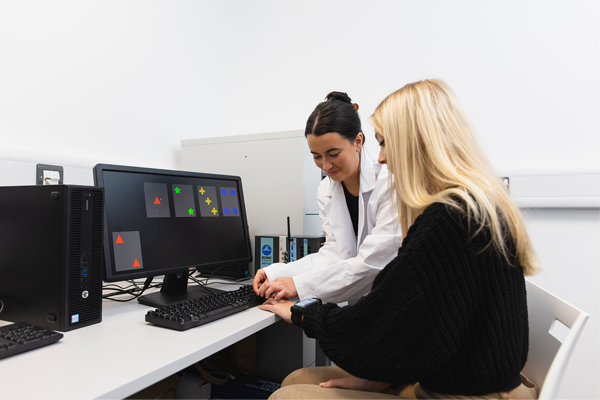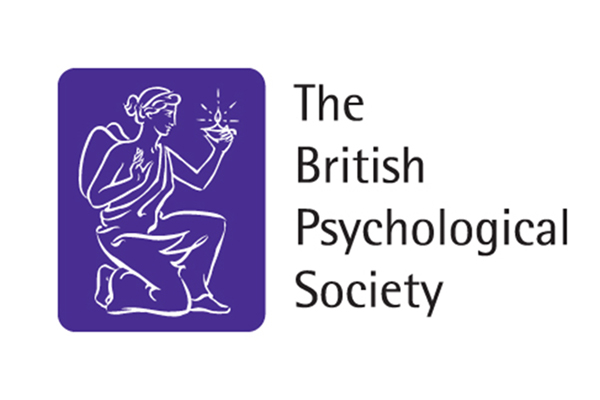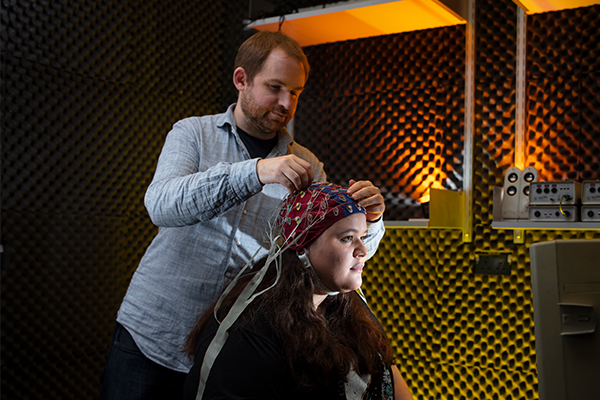Module Overview
This module covers basic concepts underlying multivariate analysis, such as factor analysis and multiple regression as well as qualitative data analysis. Students gain an appreciation of advanced statistical procedures and methods via hands on practical experience in computer workshop sessions. By the end of the course students will understand how to select appropriate methodologies in relation to research aims and be able to critically appraise the advantages and limitations of these methodologies in relation to research aims.
Module Overview
Using a combination of lectures and interactive seminars, this module will focus on the development of the brain from birth through to adulthood and later life. Contemporary research addressing how environmental and genetic factors influence the brain and behaviour will be appraised allowing students to apply a systematic approach to critically evaluate new scientific evidence in the field of Developmental Psychology.
Module Overview
This module will introduce evolutionary theory and how it can be applied to psychology. It will focus on the major topics within the field, such as natural selection and human evolutionary history, sexual selection, mating strategies, biological bases of attractiveness , altruism, social cognition, and biological signals. Additionally, time will be spent covering the history of evolutionary theory.
Module Overview
The thesis is designed to allow students to explore their interests in a specific area of research in more detail. It provides the opportunity to design, implement, analyse, and write-up a substantial piece of empirical work.
Module Overview
This module provides an opportunity to explore different research methods in a variety of applications and develop practical skills as well as critical thinking and developing research designs. In addition, it enables students to study individual differences and diversity in psychology.
Module Overview
The module will discuss a range of research methods and skills used in psychological research including a broad coverage of different statistical techniques in psychology. The module will discuss research designs, data preparation, data analysis, and dissemination. Both quantitative and qualitative research methods and skills will be covered.
Module Overview
This module provides an opportunity to study social and emotional development with regard to recent developments in social and emotional development. Also, it includes an opportunity to study historical approaches to the study of development and contexts for development (e.g., with regards to family, school, community or culture). The potential applications of psychological research and theory to typical and/or atypical development will be considered where appropriate.
Module Overview
This module typically considers child development in relation to theory and research in core topics of Developmental Psychology, for example, vision and brain development, memory and motor development, cognition and language development.
Module Overview
As part of this module students have the opportunity to learn about a specific area of research undertaken by a member of staff. This typically involves learning about a member of staff's research publications, research support structures (e.g., grant applications and/or lab work), data collection and data analysis methods, and research dissemination activities (e.g., conferences submission, peer review submission of work).
Students can only choose this option if an appropriate member of staff has been identified and has agreed to supervise the applied research work. Students are typically involved in literature review work, data collection, data analysis and other work related to the specific research interests of the member of staff. The aim of this optional module is for a student to be immersed and engaged in a specific area of research, and to have the chance to carry out pilot research work in this area.
Module Overview
The focus of this module is on recent research and current applications in development. Taking a topical approach, this module discusses child and adolescent development in relation to contexts and correlates of typical and atypical development, developmental problems and applications. Topics may include specific developmental problems and/or disorders, problems and transitions in adolescence, context-based problems, and interventions.
Module Overview
The module focuses on the illustration and application of psychological research for tackling real-world societal problems. Sessions in this module will typically be delivered by different guest speakers who will present discussions and activities based on their own experiences of applied research. Sessions will cover both the theoretical understanding of applied research, and the practical challenges involved.
Module Overview
The University has a strong commitment to providing academic programmes with public and private sector employers through student work placements.
A work placement is a three way co-operative activity between employer, student and University from which all parties are expected to benefit.
This module provides students with the opportunity to enhance their practical and transferable skills while gaining insight in how to use the theories and methods learned in their masters programme in a work environment. By linking academic experience to the world of work students also have the opportunity to reflect on possible career pathways and on how to apply psychological perspectives to future workplaces.







